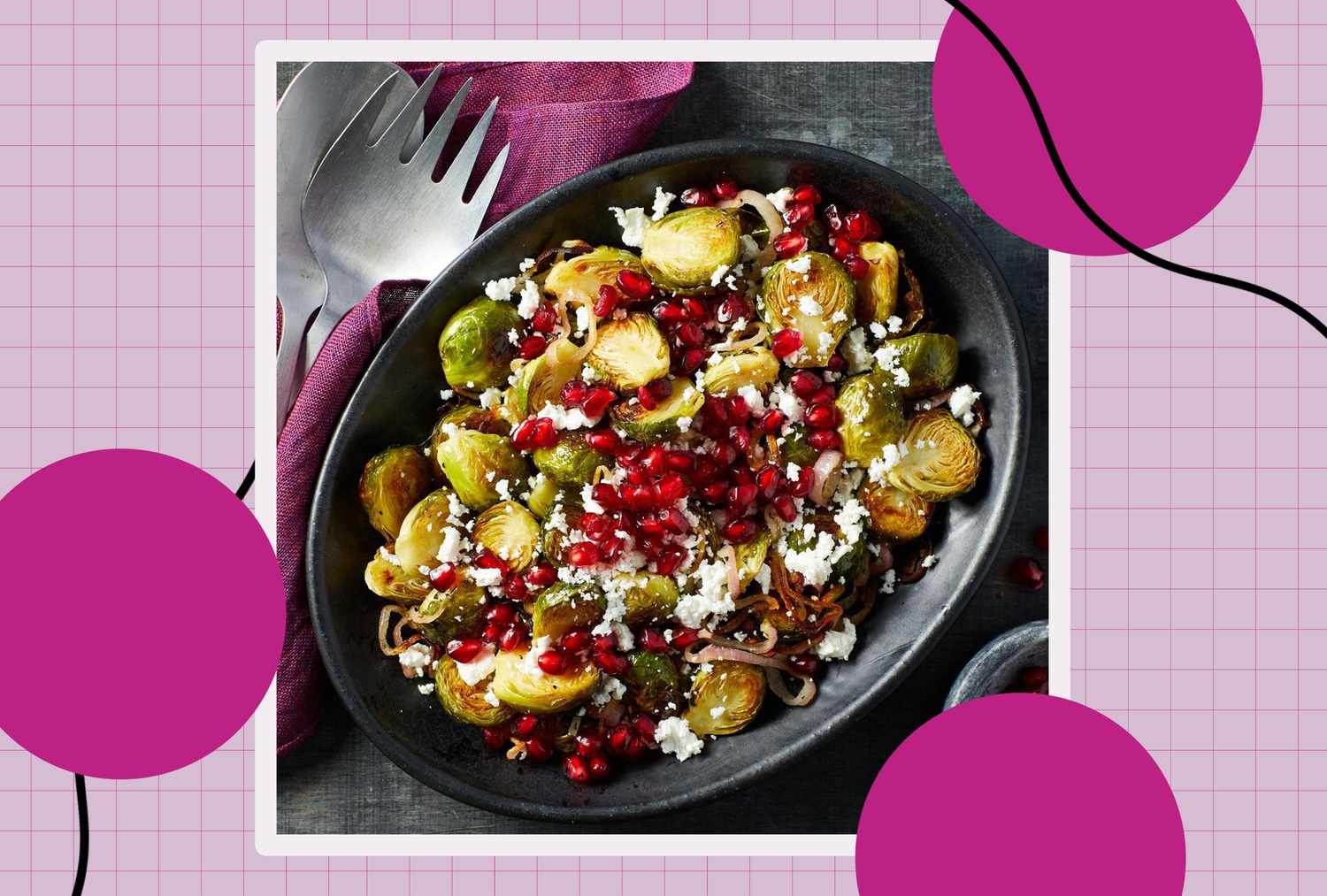Events
The #1 Surprising Fruit With More Antioxidants Than Blueberries

- Blueberries are famed for their antioxidant content, but pomegranates deserve the spotlight, too.
- The antioxidants in pomegranates may support brain health, blood pressure and inflammation.
- There are endless ways to enjoy antioxidants, from nut-topped salads to pomegranate juice.
Blueberries usually get most of the attention when it comes to antioxidant-rich fruits, but believe it or not, pomegranates contain more antioxidants per serving. While you won’t find a standardized “antioxidant content” listed on nutrition labels (unlike vitamins or minerals), researchers often measure antioxidant capacity by total polyphenol content. There are many varieties of pomegranates and blueberries, as well as methods of measuring antioxidant content, so an exact number can be hard to nail down—hence the averaged ranges provided. That said, a ½ cup serving (about 100 grams) of blueberries contains about 200 to 500 milligrams (mg) of polyphenols, while the same serving of pomegranate arils packs between 400 and 800 mg of polyphenols.
Antioxidants are kind of a big deal when it comes to your health and wellness, and with good reason. These potent plant compounds offer numerous health benefits and help prevent various diseases. We spoke with registered dietitians to better understand why pomegranates (and antioxidants) are so good for you, why you should be eating (and drinking) more of them, plus tips for increasing your antioxidant intake.
Health Benefits of Pomegranates
They’re High in Antioxidants
As we mentioned, pomegranates are an excellent source of antioxidants, which help protect the body from oxidative stress caused by free radicals.
According to Lindsay Fencl, RD, CD, antioxidants support health and prevent disease by neutralizing free radicals, which are chemically unstable molecules that can damage cells, proteins and DNA. High amounts of free radicals in the body can be harmful and contribute to many chronic diseases.
“A diet rich in antioxidants has been linked to benefits like lower inflammation, better heart health, and protection against certain chronic diseases,” says Caroline Thomason, RD, CDCES. “The ruby-red arils in pomegranates contain anthocyanins, while the rind and pith are rich in ellagitannins, both of which have been studied for heart health, reducing inflammation, and even supporting healthy blood pressure,” says Thomason.
Try adding pomegranate arils to salads like this Cucumber & Pomegranate Salad or our Romaine Salad with Orange and Radish.
They May Reduce Inflammation
While acute inflammation is the body’s normal response to what it perceives as a threat or an invader (like a bug bite or a cold virus), chronic inflammation that persists over long periods can have negative health consequences, like cardiovascular disease, type 2 diabetes and digestive disorders.
Pomegranates reduce inflammation primarily through their high polyphenol content. “There are many polyphenols in pomegranates, including flavonoids, tannins, and phenolic acids – all of which have anti-inflammatory effects in the body,” says Fencl. Consuming pomegranates regularly—whether via the little seed-like arils or from the juice—can help reduce inflammation and the risk of developing chronic disease.
To boost your intake, check out these healthy pomegranate recipes.
They May Promote Healthy Blood Pressure
If you’re looking for ways to lower your blood pressure, pomegranates are a great way to go because of their antioxidant polyphenols. Research shows that drinking pomegranate juice as part of a balanced diet can help lower both systolic and diastolic blood pressure.
“The polyphenols in pomegranate juice help reduce inflammation and oxidative stress in blood vessels, which promotes healthy blood circulation and reduces the risk of cardiovascular disease,” explains Fencl.
Keep in mind, when you drink pomegranate juice, you aren’t getting the fiber you would from eating the arils. If you’re concerned about your blood sugar, pair the juice with a balanced meal with protein, fat and fiber.
They May Support Brain Health
Cognitive dysfunction, such as dementia, is the most common neurological disorder that affects memory, perception, learning and problem-solving. Research suggests that the foods you eat may prevent or accelerate the onset of neurodegenerative diseases, and including antioxidant-rich pomegranates in your diet may reduce your risk. “Antioxidants in pomegranates reduce neuroinflammation and oxidative damage, which has been shown to support cognitive function and reduce the risk of neurodegenerative diseases,” says Fencl.
To keep your brain in tip-top shape, add pomegranates and other antioxidant-rich foods to your meals and snacks.
Tips for Upping Your Antioxidant Intake
- Eat a variety of colorful fruits and veggies daily. Thomason recommends incorporating foods with a deep hue—like berries, leafy greens, nuts and seeds—regularly. “Each color offers different types of antioxidants.”
- Drink antioxidant-rich beverages. Colorful juices, like pomegranate juices and tart cherry juice, “provide a concentrated source of polyphenols that can complement a well-rounded diet,” says Thomason.
- Jazz up meals with chopped nuts. “Sprinkle chopped pecans or walnuts on salads and bowls for an antioxidant boost and added crunch,” suggests Fencl.
- Top yogurt or oatmeal with berries. Fencl recommends topping Greek yogurt or oatmeal with blueberries, blackberries, raspberries and strawberries.
- Roast colorful veggies. Try our recipe for Anti-Inflammatory Sheet-Pan Roasted Veggies. It’s packed with anti-inflammatory ingredients like carrots, butternut squash and Brussels sprouts. Plus, purple sweet potatoes offer all the perks of regular sweet potatoes with an extra dose of anthocyanins. Serve with chicken or fish for a balanced meal.
- Use olive oil in cooking. Olive oil contains antioxidants and plant compounds that may support overall health. Check out these Healthy Homemade Salad Dressings Made with Olive Oil, and this Olive Oil-Braised Summer Squash for ideas on how to use it.
The Bottom Line
Pomegranates are high in antioxidants that may offer several health benefits, including reduced inflammation, healthy blood pressure and brain health protection. Eating a balanced diet full of colorful fruits and vegetables, whole grains, nuts, seeds and heart-healthy oils will help you increase your antioxidant intake, reduce oxidative stress and support your health.
